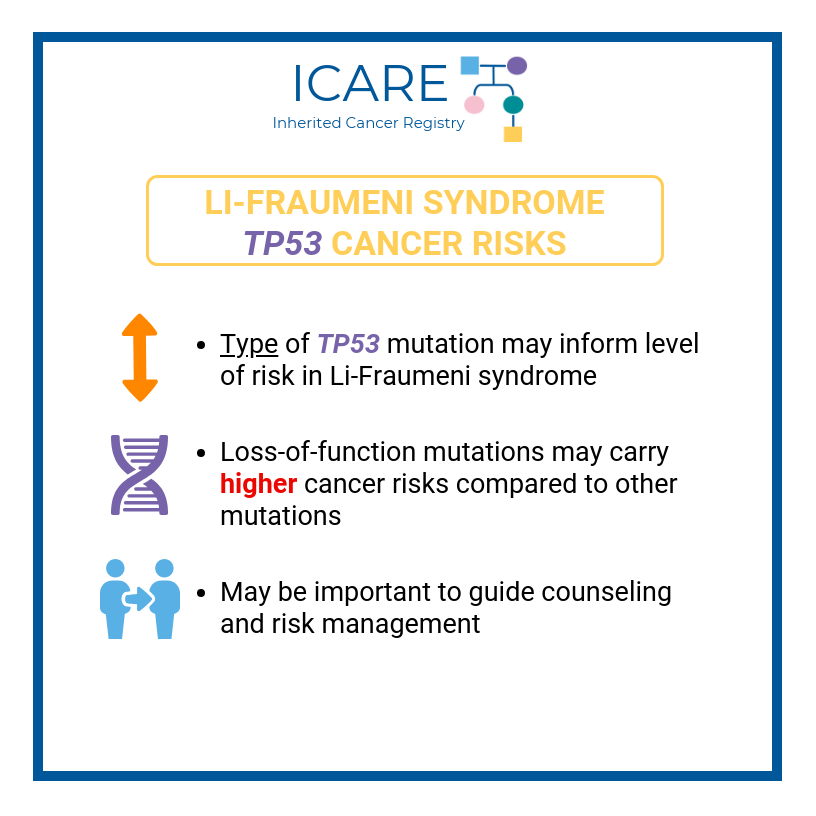 Since expanded genetic testing has become available through multigene panel tests, studies have suggested that many people identified to have TP53 mutations do not have a typical personal or family history, which is usually seen with Li-Fraumeni syndrome (LFS). A recent study looking at over 300 individuals with TP53 mutations (identified through multi-gene panel testing) suggested that the level of cancer risks was dependent on the type of mutations within the TP53 gene. Specifically, those with a loss-of-function mutation (i.e., causing the protein produced from the TP53 gene to lose its function) tended to have stronger, more classic family histories suggestive of LFS, compared to those with other types of mutations (i.e., dominant-negative missense, other missense, splice site, or in-frame deletion). Although these findings require confirmation through other studies, this type of information may eventually become very helpful for genetic counseling by refining cancer risks and guiding follow-up care among individuals with TP53 mutations.
Since expanded genetic testing has become available through multigene panel tests, studies have suggested that many people identified to have TP53 mutations do not have a typical personal or family history, which is usually seen with Li-Fraumeni syndrome (LFS). A recent study looking at over 300 individuals with TP53 mutations (identified through multi-gene panel testing) suggested that the level of cancer risks was dependent on the type of mutations within the TP53 gene. Specifically, those with a loss-of-function mutation (i.e., causing the protein produced from the TP53 gene to lose its function) tended to have stronger, more classic family histories suggestive of LFS, compared to those with other types of mutations (i.e., dominant-negative missense, other missense, splice site, or in-frame deletion). Although these findings require confirmation through other studies, this type of information may eventually become very helpful for genetic counseling by refining cancer risks and guiding follow-up care among individuals with TP53 mutations.
Rana, et al. Genet Med. 2019 May. PMID: 31105275.
